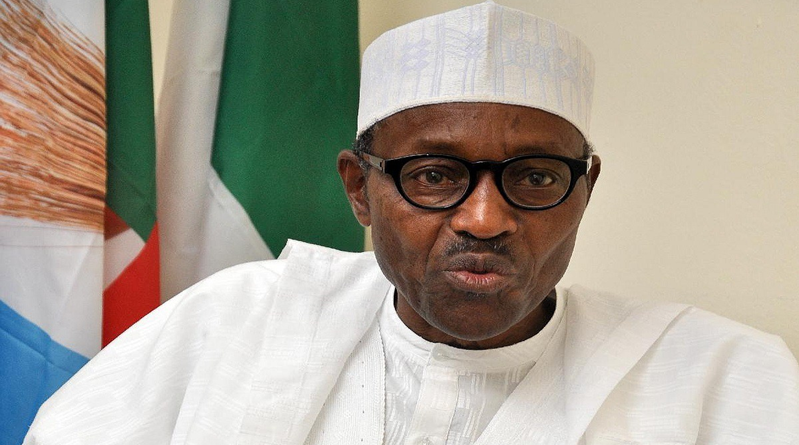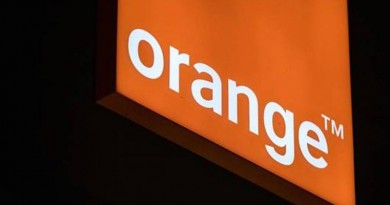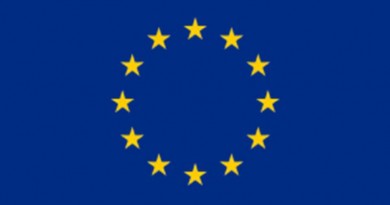President Buhari’s 2017 budget of Recovery and Growth
SPEECH OF H.E. PRESIDENT MUHAMMADU BUHARI ON THE 2017 BUDGET OF RECOVERY AND GROWTH AT JOINT SESSION OF THE NATIONAL ASSEMBLY 14TH DECEMBER 2016
Protocols
1. It is my pleasure to present the 2017 Budget Proposals to this distinguished Joint Assembly: the Budget of Recovery and Growth.
2. We propose that the implementation of the Budget will be based on our Economic Recovery and Growth Strategy. The Plan, which builds on our 2016 Budget, provides a clear road map of policy actions and steps designed to bring the economy out of recession and to a path of steady growth and prosperity.
3. We continue to face the most challenging economic situation in the history of our Nation. Nearly every home and nearly every business in Nigeria is affected one way or the other.
4. Yet I remain convinced that this is also a time of great opportunity. We have reached a stage when the creativity, talents and resilience of the Nigerian people is being rewarded. Those courageous and patriotic men and women who believed in Nigeria are now seeing the benefits gradually come to fruition. I am talking about the farmers who today are experiencing bumper harvests, the manufacturers who substituted imported goods for local materials and the car assembly companies who today are expanding to meet higher demand.
5. Distinguished members of National Assembly, for the record: For many years we depended on oil for foreign exchange revenues. In the days of high oil prices, we did not save. We squandered.
6. We wasted our large foreign exchange reserves to import nearly everything we consume. Our food, Our clothing, Our manufacturing inputs, Our fuel and much more. In the past 18 months when we experienced low oil prices, we saw our foreign exchange earnings cut by about 60%, our reserves eroded and our consumption declined as we could not import to meet our needs.
7. By importing nearly everything, we provide jobs for young men and women in the countries that produce what we import, while our own young people wander around jobless. By preferring imported goods, we ensure steady jobs for the nationals of other countries, while our own farmers, manufacturers, engineers, and marketers, remain jobless.
8. I will stand my ground and maintain my position that under my watch, that old Nigeria is slowly but surely disappearing and a new era is rising in which we grow what we eat and consume what we make. We will CHANGE our habits and we will CHANGE Nigeria.
9. By this simple principle, we will increasingly grow and process our own food, we will manufacture what we can and refine our own petroleum products. We will buy ‘Made in Nigeria’ goods. We will encourage garment manufacturing and Nigerian designers, tailors and fashion retailers. We will patronize local entrepreneurs. We will promote the manufacturing powerhouses in Aba, Calabar, Kaduna, Kano, Lagos, Nnewi, Onitsha, and Ota. From light manufacturing to cement production and petrochemicals, our objective is to make Nigeria a new manufacturing hub.
10. Today, the demand of the urban consumer has presented an opportunity for the rural producer. Across the country, our farmers, traders and transporters are seeing a shift in their fortunes. Nigerians who preferred imported products are now consuming made in Nigeria products. From Argungu in Kebbi to Abakalaki in Ebonyi, rice farmers and millers are seeing their products move. We must replicate such success in other staples like wheat, sugar, soya, tomato and dairy products. Already, the Ministry of Agriculture and Rural Development, the Central Bank of Nigeria, the Organised Private Sector and a handful of Nigerian commercial banks, have embarked on an ambitious private sector-led N600 billion program to push us towards self-sufficiency in three years for these products. I hereby make a special appeal to all State Governors to make available land to potential farmers for the purpose of this program.
11. To achieve self-sufficiency in food and other products, a lot of work needs to be done across the various value chains. For agriculture, inputs must be available and affordable. In the past, basic inputs, like the NPK fertilizer, were imported although key ingredients like urea and limestone are readily available locally. Our local blending plants have been abandoned. Jobs lost and families destroyed. I am pleased to announce today that on 2nd December 2016, Morocco and Nigeria signed an ambitious collaboration agreement to revive the abandoned Nigerian fertilizer blending plants. The agreement focuses on optimizing local materials while only importing items that are not available locally. This program has already commenced and we expect that in the first quarter of 2017, it will create thousands of jobs and save Nigeria US$200 million of foreign exchange and over N60 billion in subsidy.
12. We must take advantage of current opportunities to export processed agricultural products and manufactured goods. Let it not be lost on anyone that the true drivers of our economic future will be the farmers, small and medium sized manufacturers, agro-allied businesses, dressmakers, entertainers and technology start-ups. They are the engine of our imminent economic recovery. And their needs underpin the Economic Recovery and Growth Plan.
13. Let me, Mr. Senate President, Right Hon. Speaker, here acknowledge the concerns expressed by the National Assembly and, in particular, acknowledge your very helpful Resolutions on the State of the Economy, which were sent to me for my consideration. The Resolutions contained many useful suggestions, many of which are in line with my thinking and have already been reflected in our Plan. Let me emphasise that close cooperation between the Executive and the Legislature is vital to the success of our recovery and growth plans.
14. Permit me to briefly outline a few important features of the Plan. The underlying philosophy of our Economic Recovery and Growth Plan is optimizing the use of local content and empowering local businesses. The role of Government must be to facilitate, enable and support the economic activities of the Nigerian businesses as I earlier mentioned. Fiscal, monetary and trade policies will be fully aligned and underpinned by the use of policy instruments to promote import substitution. Government will however at all times ensure the protection of public interest.
15. First we clearly understand the paradox that to diversify from oil we need oil revenues. You may recall that oil itself was exploited by investment from agricultural surpluses. We will now use oil revenues to revive our agriculture and industries. Though we cannot control the price of crude oil, we are determined to get our production back to at least 2.2 million barrels per day. Consistent with the views which have also been expressed by the National Assembly, we will continue our engagement with the communities in the Niger Delta to ensure that there is minimum disruption to oil production. The National Assembly, State and Local Governments, Traditional Rulers, Civil Society Organisations and Oil Companies must also do their part in this engagement. We must all come together to ensure peace reigns in the Niger Delta.
16. In addition, we will continue our ongoing reforms to enhance the efficiency of the management of our oil and gas resources. To this effect, from January 2017, the Federal Government will no longer make provision for Joint Venture cash-calls. Going forward, all Joint Venture operations shall be subjected to a new funding mechanism, which will allow for Cost Recovery. This new funding arrangement is expected to boost exploration and production activities, with resultant net positive impact on government revenues which can be allocated to infrastructure, agriculture, solid minerals and manufacturing sectors.
17. I earlier mentioned our ambitions for policy harmonisation. But we all know that one of the peculiar problems of our environment is execution. This phenomenon affects both government carrying out its own functions and the innumerable bureaucratic hurdles in doing business. To this end, I will be issuing some Executive Orders to ensure the facilitation and speeding up of government procurements and approvals. Facilitation of business and commerce must be the major objective of government agencies. Government must not be the bottle neck. Additionally, these Executive Orders will widen the scope of compliance with the Fiscal Responsibility Act by Federal Government owned entities and promote support for local content in Ministries, Department and Agencies.
18. The Executive will soon place before the National Assembly proposals for legislation to reduce statutorily mandated minimum times for administrative processes in order to speed up business transactions. In addition, I have established the Presidential Enabling Business Council, chaired by the Vice President with a mandate to make doing business in Nigeria easier and more attractive. Getting approvals for business and procurements will be simplified and made faster.
19. In 2017, we will focus on the rapid development of infrastructure, especially rail, roads and power. Efforts to fast-track the modernization of our railway system is a priority in the 2017 Budget. In 2016, we made a lot of progress getting the necessary studies updated and financing arrangements completed. We also addressed some of the legacy contractor liabilities inherited to enable us to move forward on a clean slate. Many of these tasks are not visible but are very necessary for sustainability of projects. Nigerians will soon begin to see the tangible benefits in 2017.
20. We also have an ambitious programme for growing our digital platforms in order to modernise the Nigerian economy, support innovation and improve productivity and competitiveness. We will do this through increased spending on critical information technology infrastructure and also by promoting policies that facilitate investments in this vital sector.
21. During 2016, we conducted a critical assessment of the power sector value chain, which is experiencing major funding issues. Although Government, through the CBN and other Development Finance Institutions has intervened, it is clear that more capital is needed. We must also resolve the problems of liquidity in the sector. On its part, Government has made provisions in its 2017 Budget to clear its outstanding electricity bills. This we hope, will provide the much needed liquidity injection to support the investors.
22. In the delivery of critical infrastructure, we have developed specific models to partner with private capital, which recognize the constraints of limited public finances and incorporate learnings from the past. These tailor-made public private partnerships are being customized, in collaboration with some global players, to suit various sectors, and we trust that, the benefits of this new approach will come to fruition in 2017.
23. Fellow Nigerians, although a lot of problems experienced by this Administration were not created by us, we are determined to deal with them. One of such issues that the Federal Government is committed to dealing with frontally, is the issue of its indebtedness to contractors and other third parties. We are at an advanced stage of collating and verifying these obligations, some of which go back ten years, which we estimate at about N2 trillion. We will continue to negotiate a realistic and viable payment plan to ensure legitimate claims are settled. 2016 Budget Performance
24. In 2016, the budget was prepared on the principles of zero based budgeting to ensure our resources were prudently managed and utilized solely for the public good. This method was a clear departure from the previous incremental budgeting method. We have adopted the same principles in the 2017 Budget.
25. Distinguished members of the National Assembly may recall that the 2016 Budget was predicated on a benchmark oil price of US$38 per barrel, oil production of 2.2 million barrels per day and an exchange rate of N197 to the US dollar.
26. On the basis of these assumptions, aggregate revenue was projected at N3.86 trillion while the expenditure outlay was estimated at N6.06 trillion. The deficit of N2.2 trillion, which was about 2.14% of GDP was expected to be mainly financed through borrowing.
27. The implementation of the 2016 Budget was hampered by the combination of relatively low oil prices in the first quarter of 2016, and disruptions in crude oil production which led to significant shortfalls in projected revenue. This contributed to the economic slow-down that negatively affected revenue collections by the Federal Inland Revenue Service and the Nigerian Customs Service.
28. As at 30 September 2016, aggregate revenue inflow was N2.17 trillion or 25% less than pro rated projections. Similarly, N3.58 trillion had been spent by the same date on both recurrent and capital expenditure. This is equivalent to 79% of the pro rated full year expenditure estimate of N4.54 trillion as at the end of September 2016.
29. In spite of these challenges, we met both our debt service obligations and personnel costs. Similarly, overhead costs have been largely covered.
30. Although capital expenditure suffered as a result of project formulation delays and revenue shortfalls, in the five months since the 2016 Budget was passed, the amount of N753.6 billion has been released for capital expenditure as at the end of October 2016. It is important to note that this is one of the highest capital releases recorded in the nation’s recent history. In fact, it exceeds the aggregate capital expenditure budget for 2015.
31. Consequently, work has resumed on a number of stalled infrastructure projects such as the construction of new terminals at the country’s four major airports; numerous major road projects; key power transmission projects; and the completion of the Kaduna – Abuja railway to mention a few.
32. We remain resolute in our commitment to the security of life and property nationwide. The courageous efforts and sacrifices of our heroes in the armed forces and para military units are clear for all to see. The gradual return to normality in the North East is a good example of the results. Our resolve to support them is unwavering. Our spending in the 2016 fiscal year focused on ensuring these gallant men and women are properly equipped and supported. We will continue to prioritise defence spending till all our enemies, within and outside, are subdued.
33. Stabilisation of sub-national government finances remains a key objective in our plans to stimulate the economy. In June 2016, a conditional Budget Support Programme was introduced, which offered State Governments N566 billion to address their funding shortfalls. To participate, State Governments were required to subscribe to certain fiscal reforms centered around transparency, accountability and efficiency. For exampl




